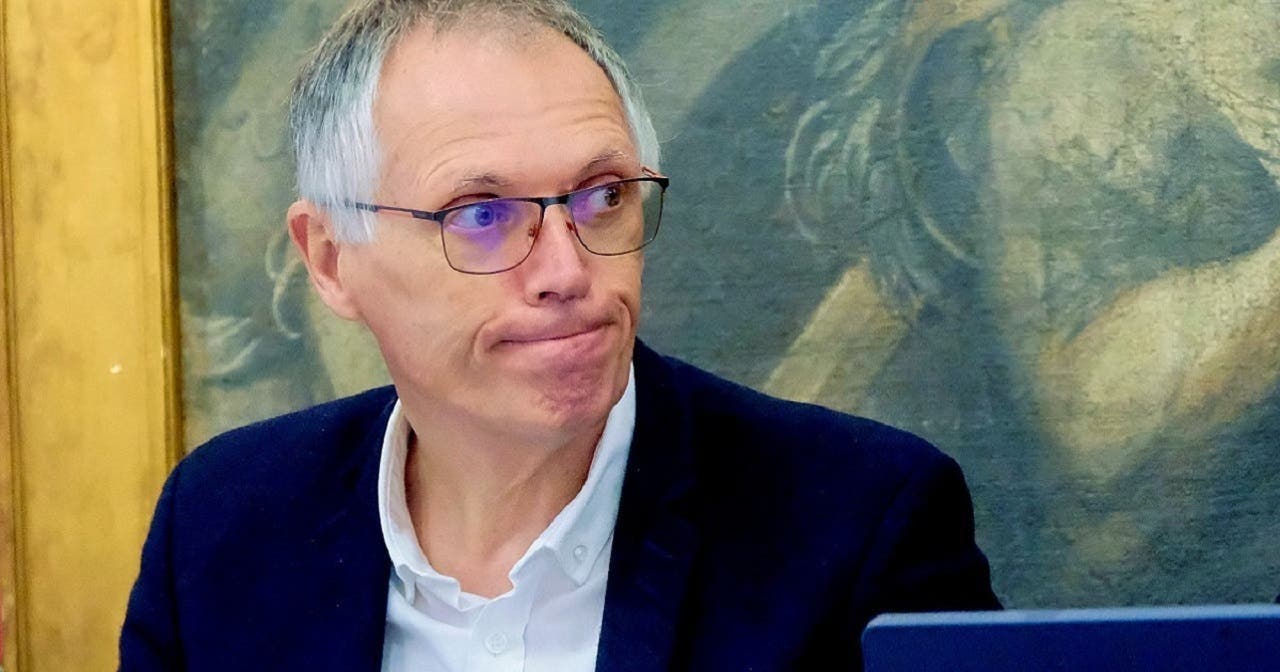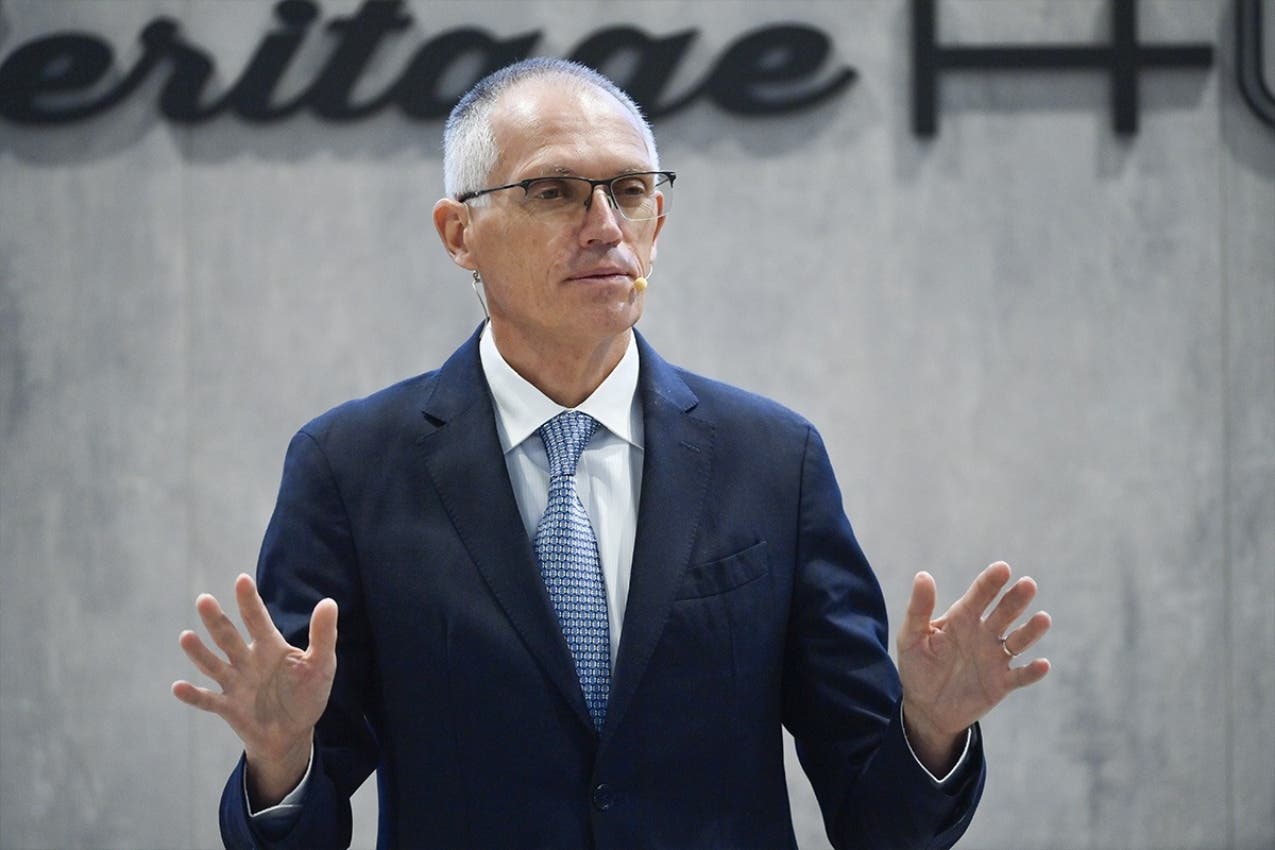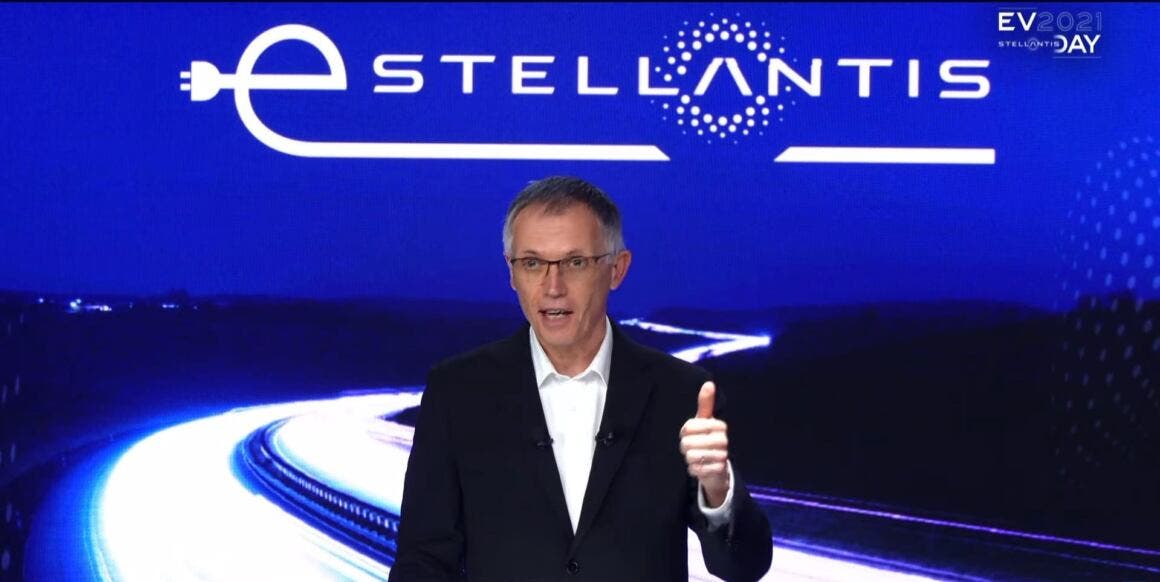Former Stellantis CEO Carlos Tavares is speaking out about the automotive group again almost a year after his resignation. The Portuguese manager has expressed strong concerns for the group’s future, warning that the delicate “three-way balance” between Italy, France and the United States could soon crack. In a recent interview, the Portuguese manager described several possible scenarios for the multinational, now grappling with decisive challenges for its stability.
Former Stellantis CEO Tavares warns of possible split between European and U.S. operations

According to Tavares, Stellantis is going through a complex phase marked by declining demand in Western markets, growing pressure from Chinese manufacturers and geopolitical tensions that condition the industrial strategies of major automotive groups. In this context, the group’s former number one warned of possible risks coming from within the company, emphasizing that Stellantis‘ survival as a unified entity will depend on management’s daily commitment to preserving its cohesion.
Among various prospected scenarios, Tavares did not exclude the possibility of a split between the group’s European and American divisions. In such a scenario, Stellantis could decide to redefine its global presence following more targeted market logic. For example, American activities (therefore Chrysler, Ram, Jeep and Dodge) would return to focusing on North America, while European operations, brands like Fiat, Alfa Romeo, Lancia and Maserati, could end up under the control of a Chinese manufacturer, interested in strengthening its presence in the Old Continent. A strategy that would recall, at least in part, the one undertaken by General Motors in recent years, with progressive disengagement from less profitable markets.

Speaking of the new company course, Tavares defined Antonio Filosa’s appointment as successor at the helm of the group as the result of “a six-month selection process.” The former CEO praised Filosa’s deep internal knowledge and his ability to guarantee continuity and strategic stability, ensuring a transition consistent with the vision established in recent years. It remains to be seen whether Tavares‘ predictions will materialize or whether Stellantis will manage to maintain its global balance in an increasingly competitive sector.
